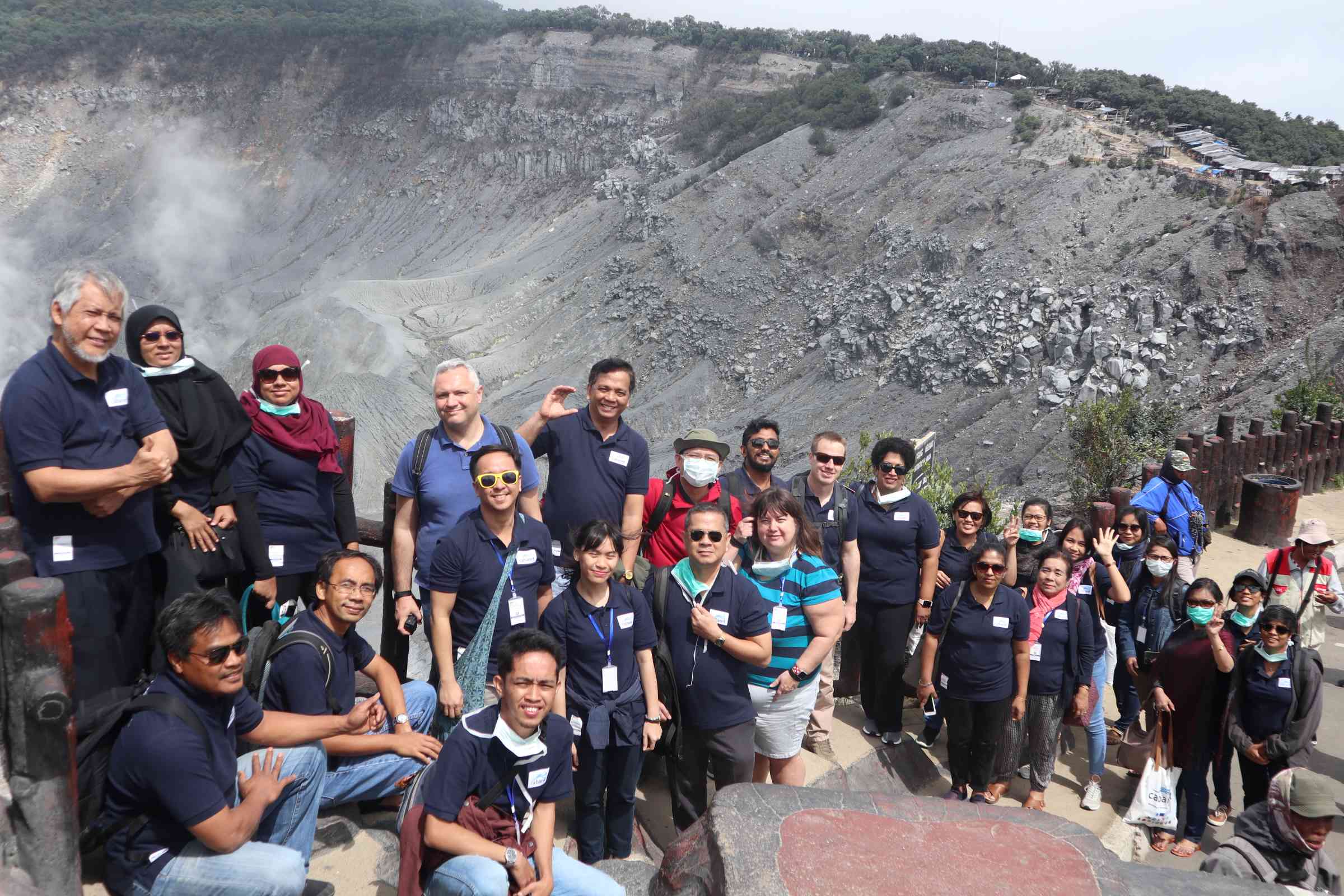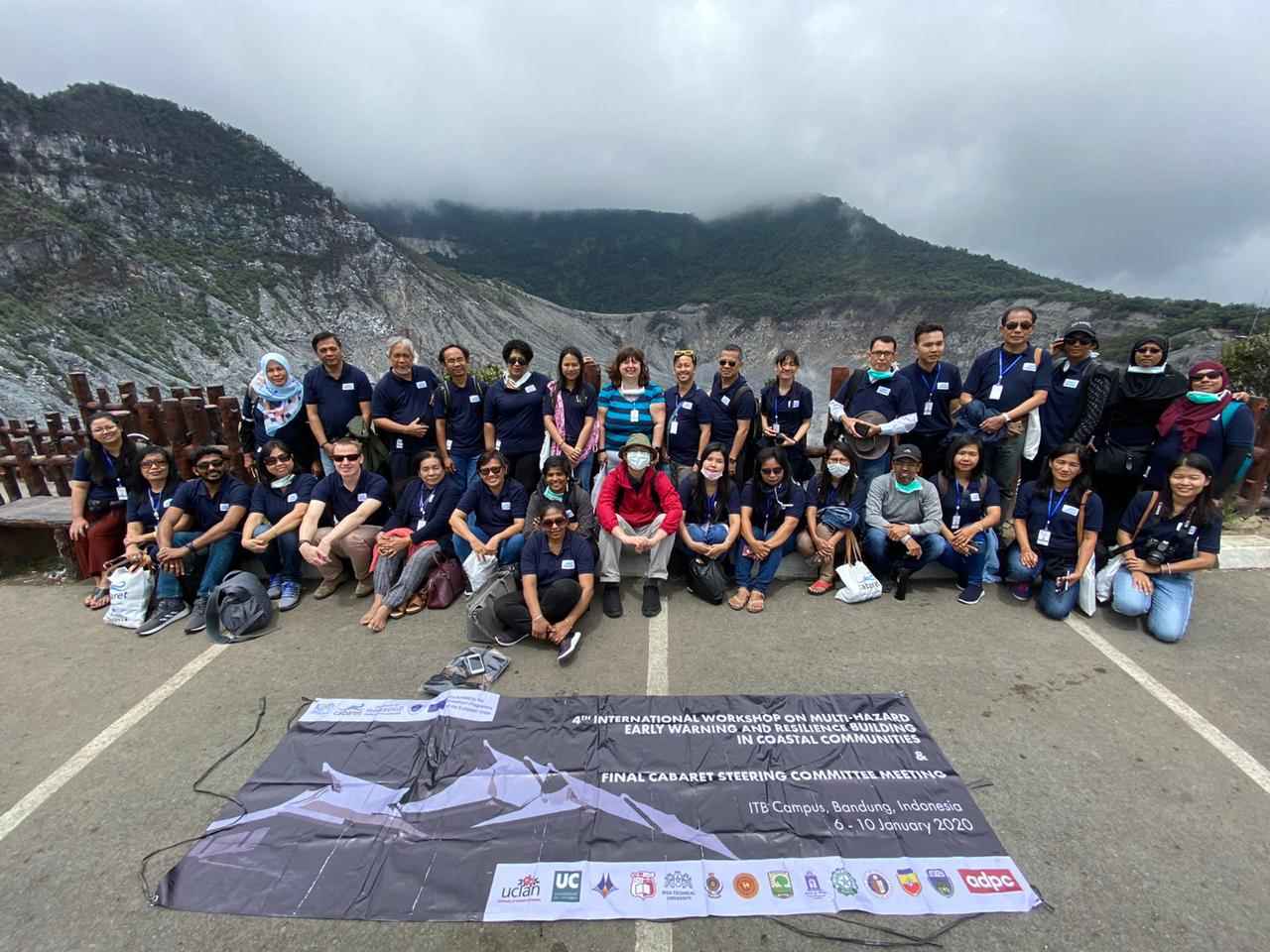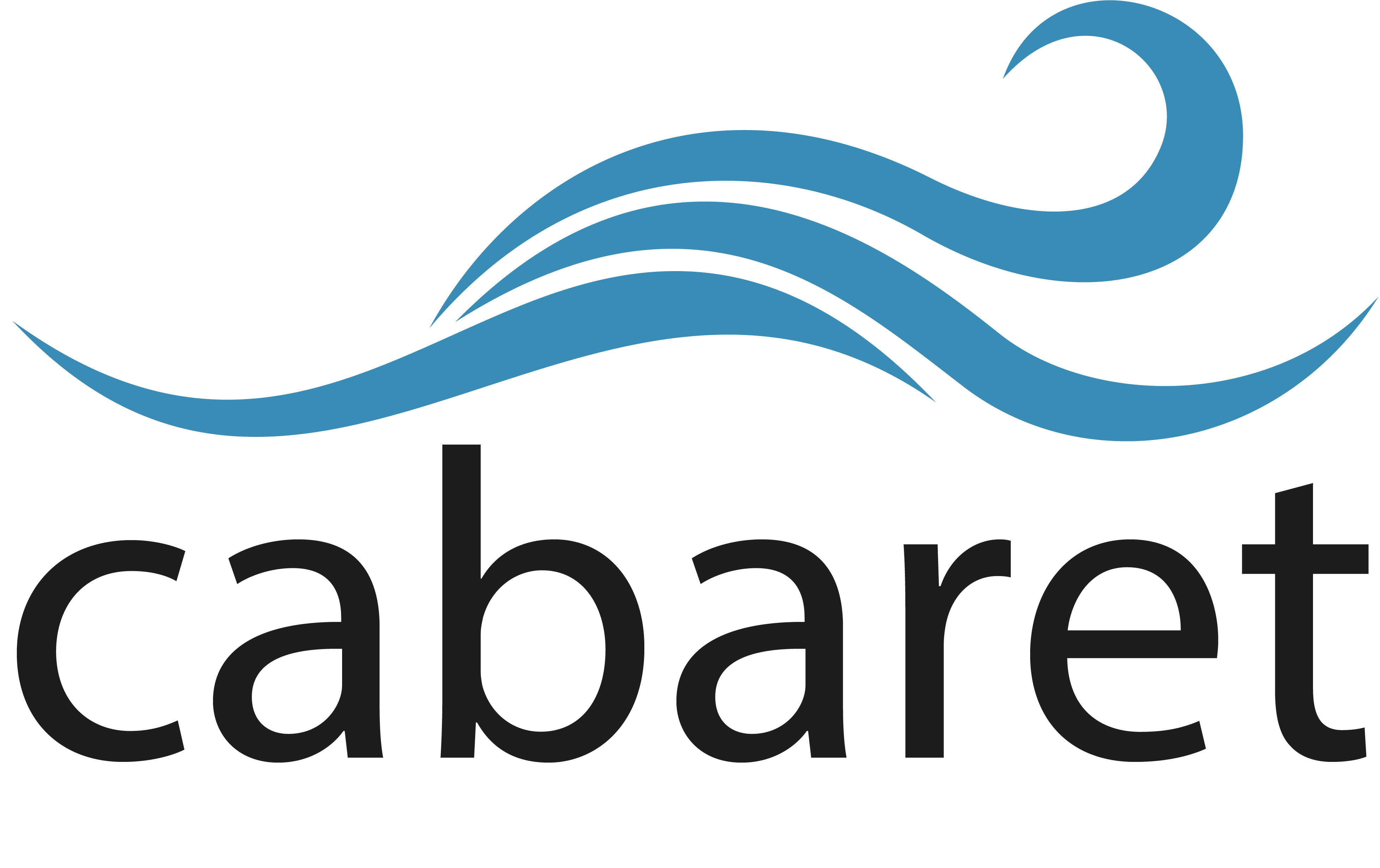News
The University of Huddersfield and Institute Technology Bandung were awarded the prestigious Newton Prize for the year 2019 on the 14th January 2020 in Jakarta, Indonesia. Out of 150 research teams, this partnership was shortlisted among the 5 finalists who were nominated for the prize. The newton Prize recognises the best research and innovation project between Indonesia and the United Kingdom from 2016 to 2019. The 2019 Newton Prize was achieved by the winning team for the study conducted on “Mainstreaming Integrated Disaster Risk Reduction and Climate Change Adaptation into Coastal Urban Agglomeration Policy”. Professor Haigh said that the Newton Prize would provide funding for a 12-month project titled Developing and harmonising local capacities for tsunami early warning. “We are looking to improve the dissemination of tsunami early warning information, particularly at the local level,” he explained.“We will examine the relationships and the flows between the actors involved in the process, as well as the barriers and enablers to some of the emerging technologies. We hope to improve decision making as well as the communication of early-warning messages among key institutions, and also to communities at risk.”Although coastal Indonesia is the focus, findings from the project will be relevant across the whole of the Indian Ocean region, added Professor Haigh, and they will be widely disseminated.

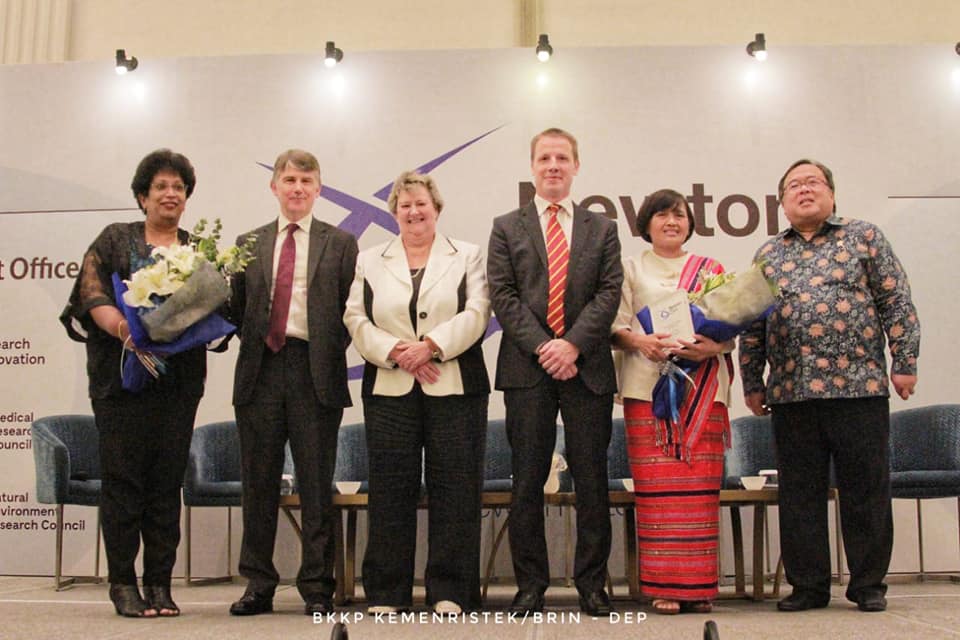
The CABARET team was the co-organizer of the 9th International Conference on Building Resilience (ICBR). The event was jointly organised by the Institute of Technology Bandung, Indonesia, and the University of Huddersfield, the United Kingdom from 13th to 15th January 2020 at the Westin Resort, Bali, Indonesia. More than 200 delegates participated in this three-day international conference under the theme of "Investing Disaster Risk Reduction and Climate Change Adaptation for Building Resilient Cities". Over 100 research papers were presented under 9 sub-themes.The conference was chaired by Dr Harkunti Rahayu, from the Institute of Technology Bandung, Indonesia, a member of CABARET consortium. A special feature of the 9th ICBR was the participation of national-level policymakers, disaster risk reduction agencies, and experts. Among them, Dr. HC. H. Suharso Monoarfa, the Minister of Planning and National Development/Head of National Planning Agency, Indonesia; Letnan Jenderal TNI Doni Monardo, Head of National Disaster Management Agency; Dr. Danis Sumadilaga, the Director-General of Human Settlements, Indonesia; Gita Irawan Wirjawan, former Minister of Trade, Founder of Ancora Group and School of Government Public Policy, Indonesia; Dr. Ir. Abdul Kamarzuki, Director-General of Spatial Plan, Ministry of Ministry of Agrarian Affairs & Spatial Plannin; Ir. Luky Alfirman, Director General of Budget Financing and Risk Management; Mr. Hans Guttman, the Executive Director of Asian Disaster Preparedness Centre; Dr. Ir. I Wayan Koster, Governor of Bali Province, Indonesia; Polana Banguningsih Pramesti, Director General of Civil Aviation, Ministry of Transportation.


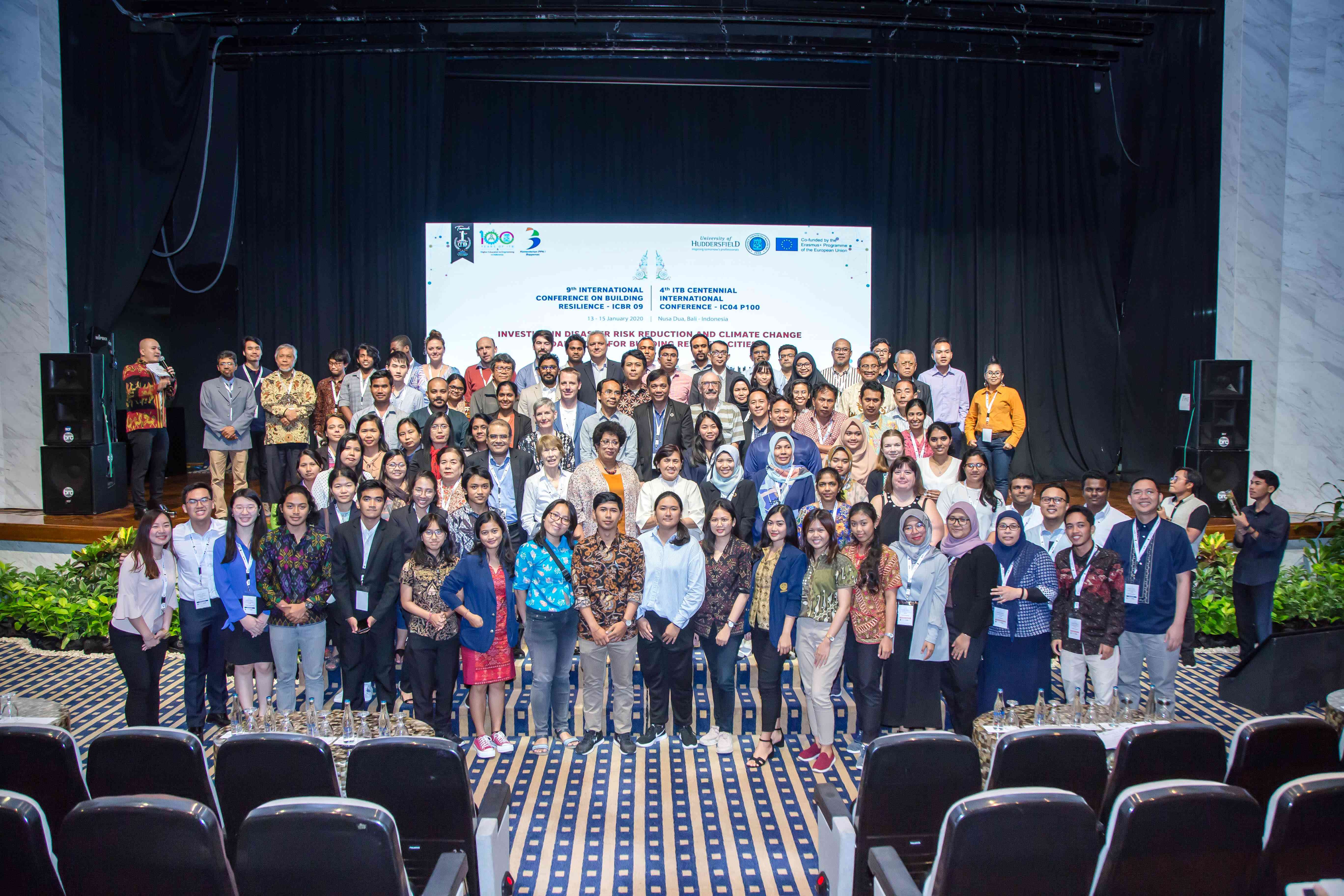
The CABARET team visited the venue of the first Asian–African or Afro–Asian Conference (Bandung Conference), which was held in April 1955 in Bandung, Indonesia with the participation of 29 member countries which represented more than 50% of world’s population. The conference aimed to promote Afro-Asian economic and cultural cooperation and to oppose colonialism or neo-colonialism by any nation. The conference was an important step towards the eventual creation of the Non-Aligned Movement. Like CABARET, the conference was an opportunity for strengthening regional cooperation.
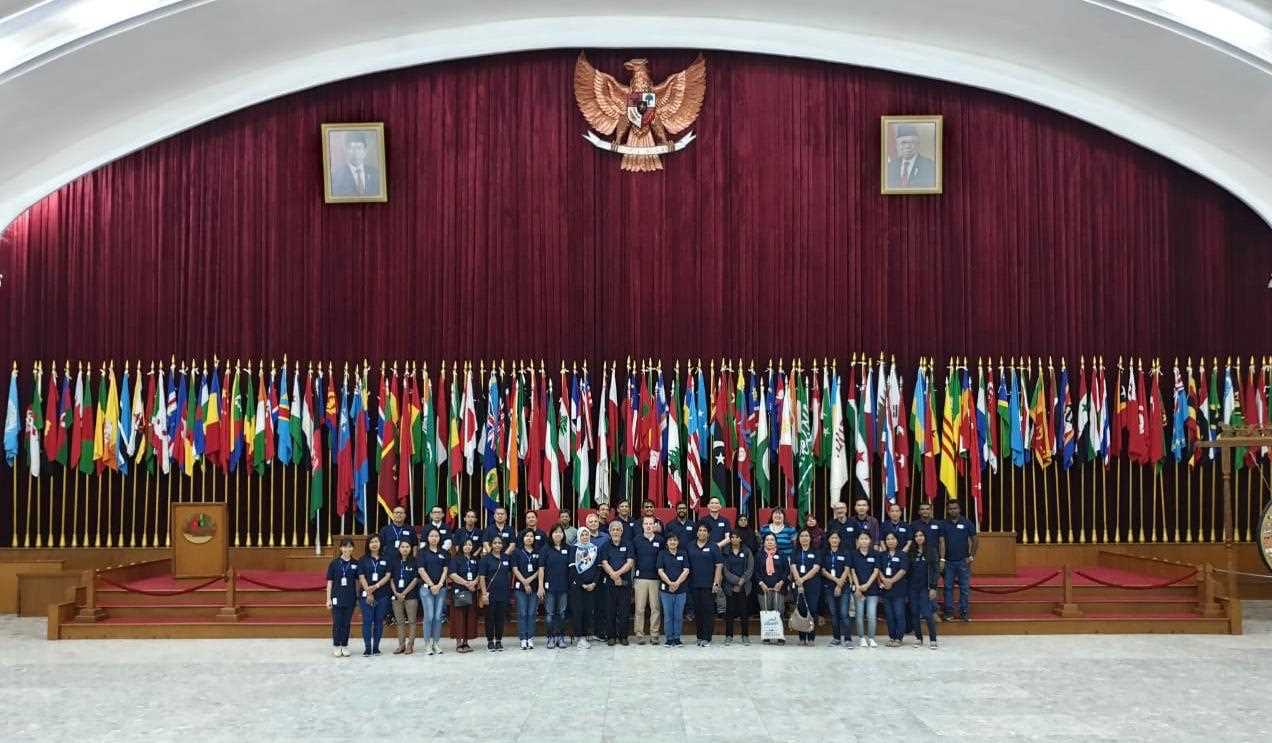
CABARET members were fortunate to visit two important institutions responsible for tackling disaster risk reduction in Indonesia. The National Disaster Management Agency (BNPB) and Indonesia agency for meteorology, climatology and geophysics (BMKG). The team were given a demonstration of Indonesia’s climate early warning system and tsunami service provider role, which benefits 28 Indian Ocean countries and their national disaster management systems. Participants received a 24/7 real life data simulation experience at the early warning operating system located in BNPB. BNPB is Indonesia’s leading government institution in coordinating the planning and implementation of disaster management activities in an integrated manner, and is responsible for implementing disaster management and emergency management from before, during, and after an event, including disaster prevention, preparedness, emergency handling, and recovery. It is involved in coordinating implementation of disaster management activities in a planned, integrated, and comprehensive manner. BNPB also works to raise awareness about the need to reduce disaster risk at the national level, among local government at the provincial and district / city level, and among civil society, the private sector, and international institutions and the community at the grassroots level.
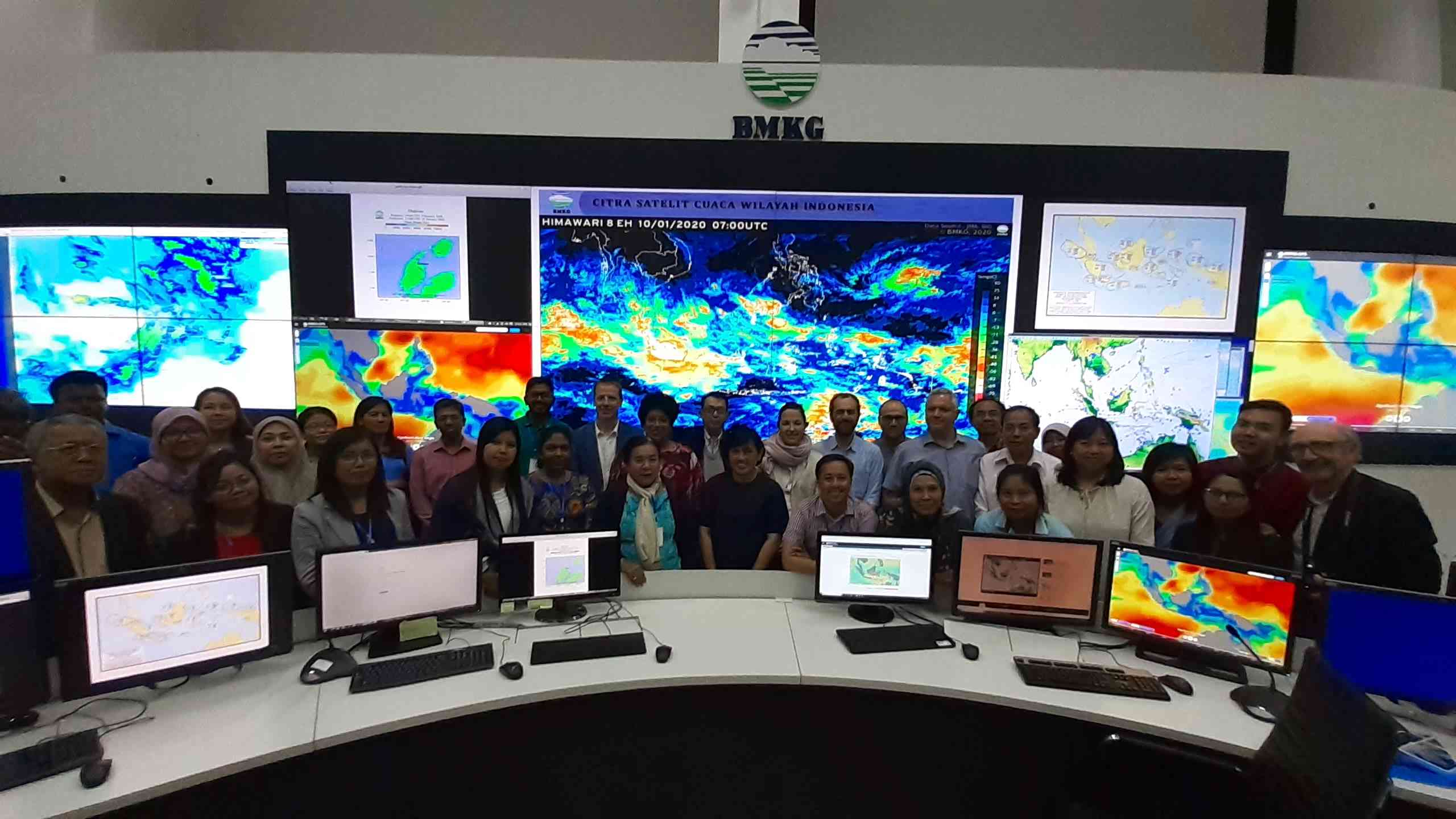
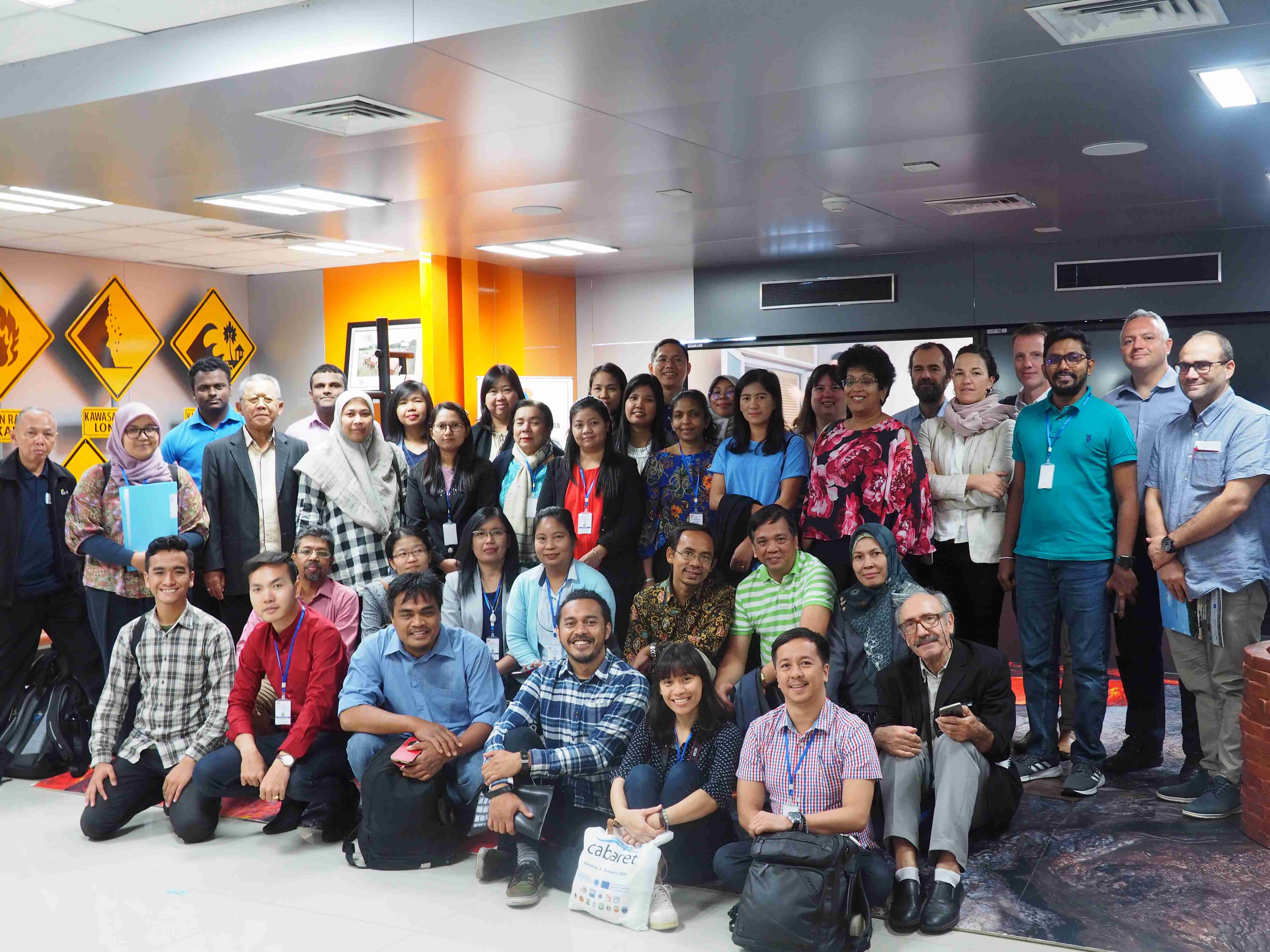
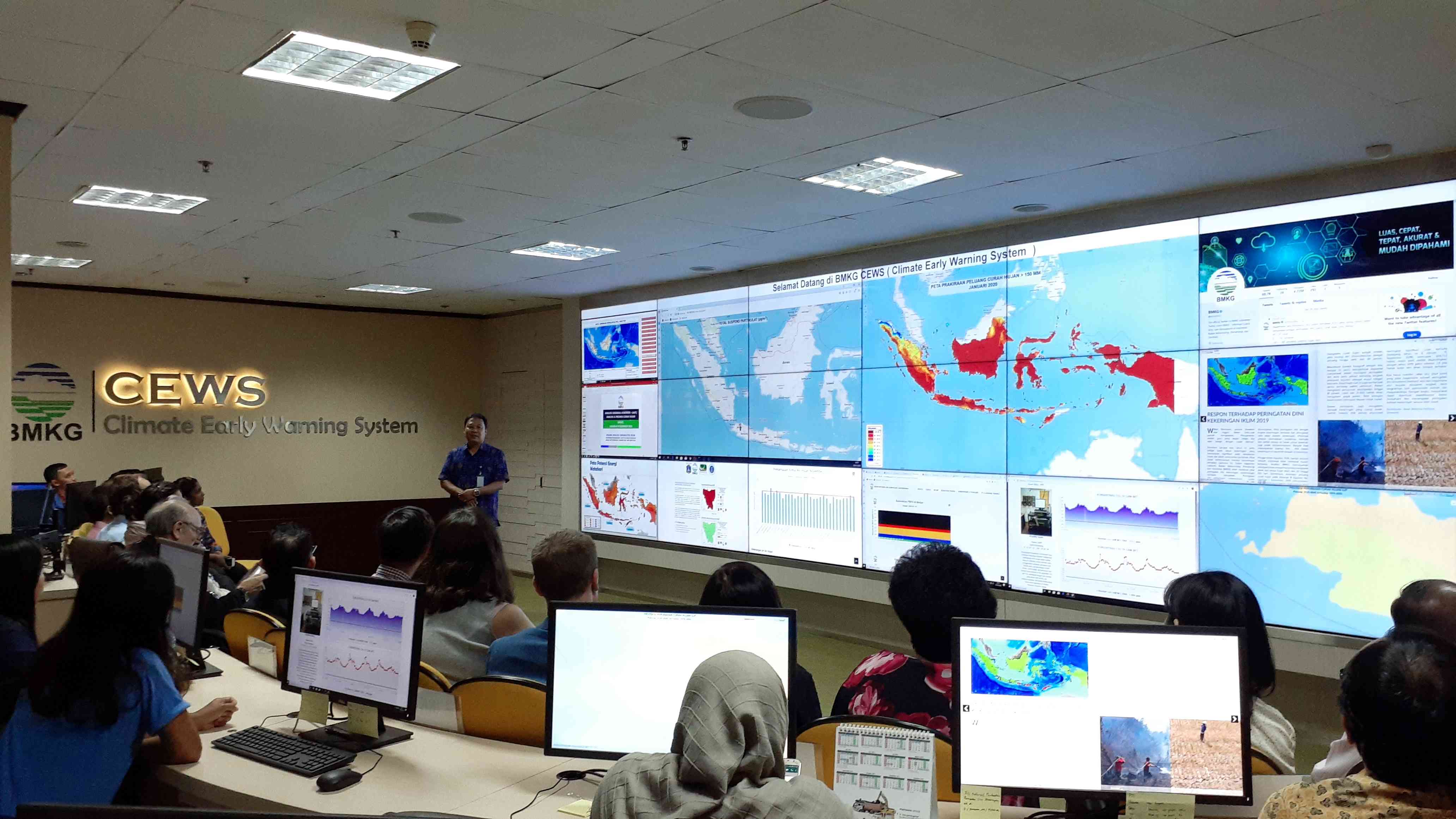
A technical visit to Tangkuban Perahu Volcano was organised by the Institute Technology Bangdung, which enabled CABARET team members to experience an active volcano, including the release of sulphur fumes. Tangkuban Parahu is a stratovolcano 30 km north of the city of Bandung, the provincial capital of West Java. Together with Mount Burangrang and Bukit Tunggul, it is a remnant of the ancient Mount Sunda after the plinian eruption caused the Caldera to collapse.
